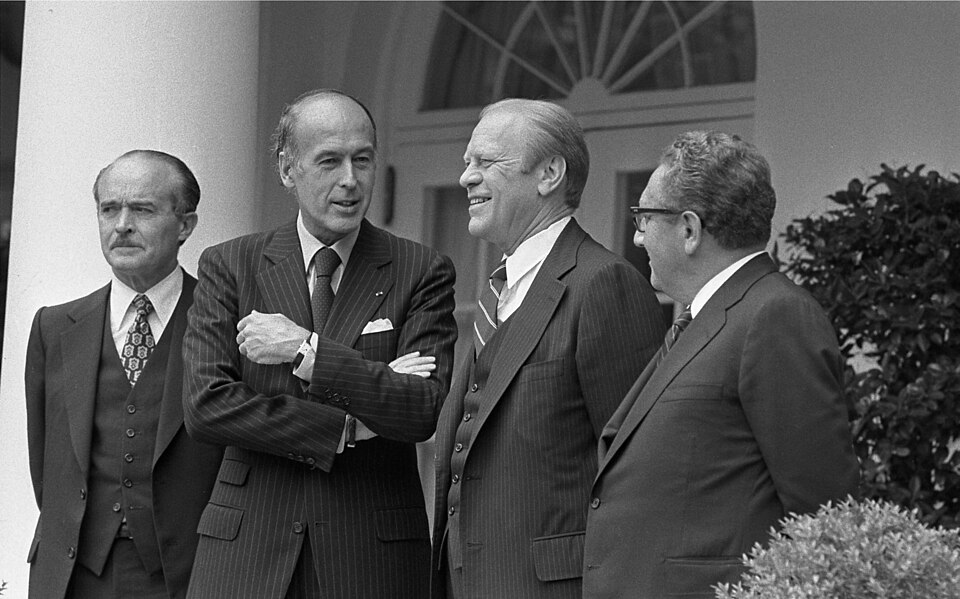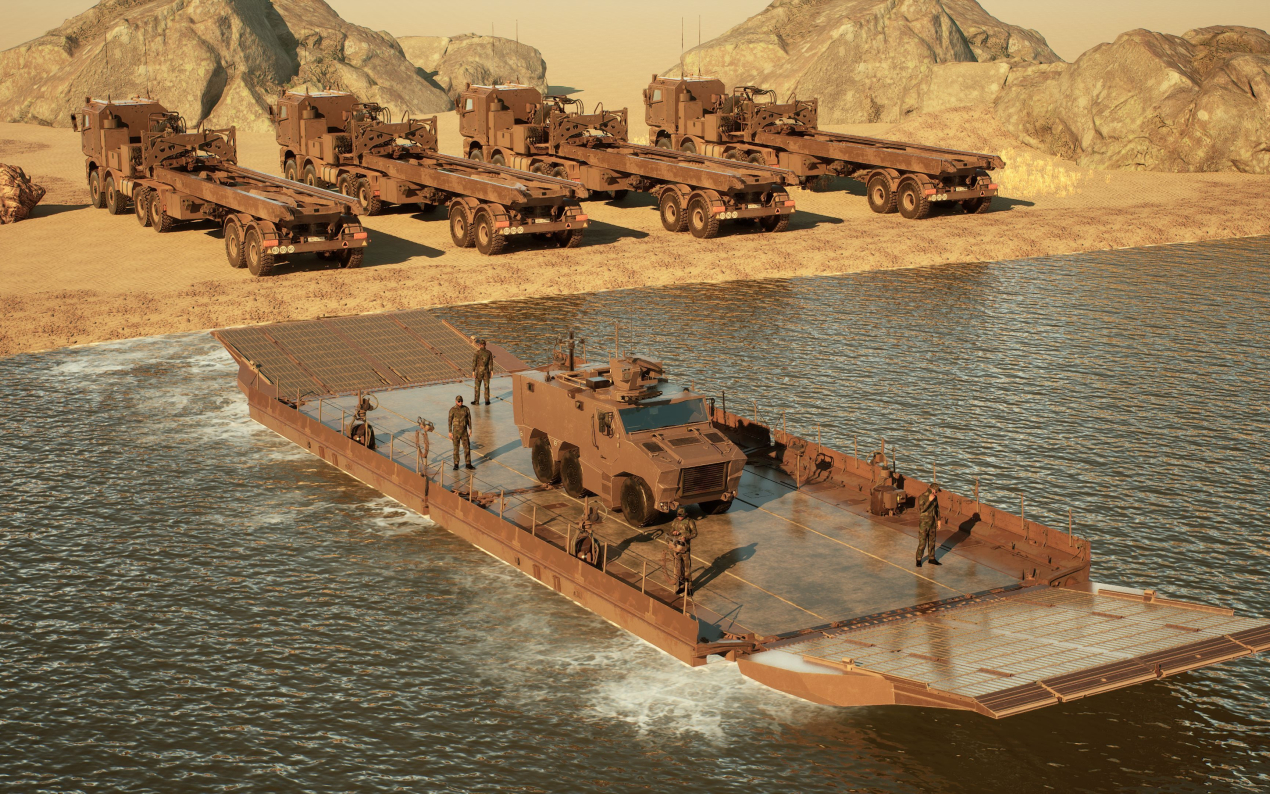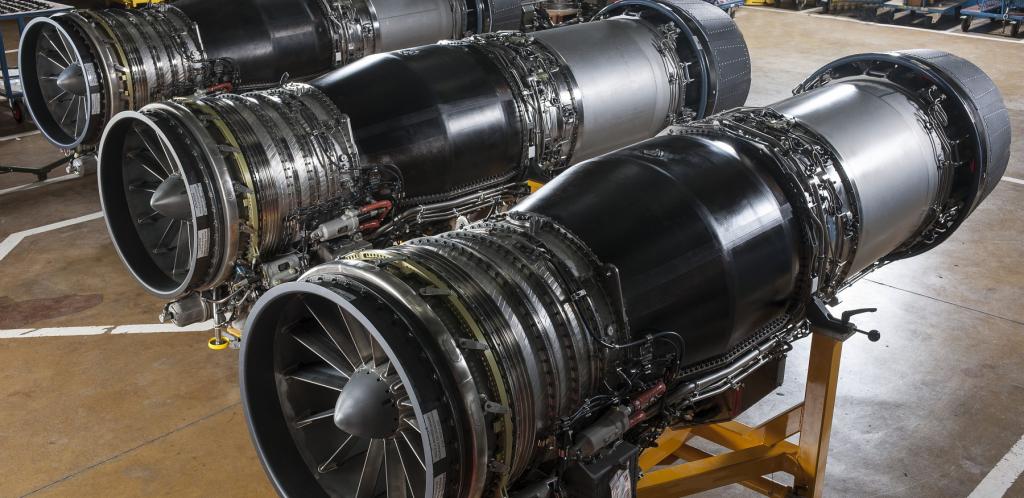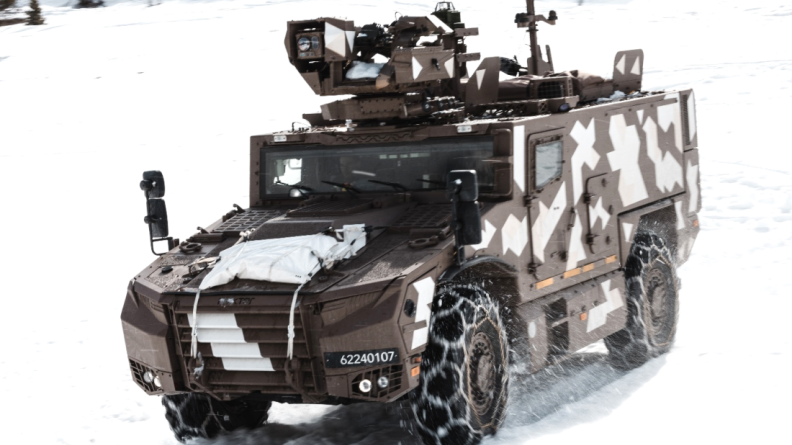Edition anglaise

October 2006 - n° 690
Speech to Ambassadors - Jacques Chirac
Speech by President of the Republic, at the opening of the fourteenth Ambassadors’ Conference, Paris, 28 August 2006. Read more
Defence and the sea - Michèle Alliot-Marie
Since Antiquity, man has been well aware of the benefits brought by mastery of the sea, and states have continuously sought for ways to exploit it to exercise their power. The sea is an area in which states can affirm their sovereignty and exert their economic strength and influence. Yet it is also an area of risks. Globalisation of trade, the new geopolitical scene and the proliferation of threats in today’s world are such that mastery of the sea is an issue that calls for strong French defence within a European framework.
French maritime policy - Jean-Yves Besselat
The European Commission is currently developing a new integrated maritime policy; the publication of a green paper on 7 June 2006 shows an increased awareness not only of the vital contribution that the sea is already making to European prosperity, but also of the potential it offers in terms of employment. This article analyses the maritime policy that has emerged in France since 2002, encouraged by the President of the Republic and his government, whose aim is to return the maritime aspects of French policy to centre stage.
Naval forces and freedom of the seas in the twenty-first century - Alain Oudot de Dainville
The freedom of the seas has contributed to the boom in sea transport which has steadily become the motor of the world economy. While it allows naval forces liberty of action, it also profits many whose activities are illicit. The Navy is the main actor in maritime security, and also has its part to play in crisis prevention and crisis management. The current naval re-equipment programme will allow France to meet these new challenges.
Marime security: the future Royal Navy - Jonathon Band
After a survey of the post-Cold War geostrategic scene, Admiral Sir Jonathon Band reminds us that Britain is above all a naval power. More generally, the world economy depends on the sea, and maritime security is thus a major concern for all responsible countries. The First Sea Lord sets out his vision of tomorrow’s Royal Navy.
The Blue Planet: an introductory essay to the geopolitics of the sea - Alain Coldefy
This article is intended to extend the ideas of the European Commission’s Green Paper on European maritime policy published in June 2006, and to approach them from a geopolitical angle in order to introduce some thoughts in the field of defence and security.
DCN today and tomorrow? - Jean-Marie Poimboeuf
DCN became a private company in 2003, and has already met its first target, that of financial performance. Based on this result, and also on its heritage of France’s long naval tradition, DCN is now ready to meet a second challenge: that of playing an active role in the consolidation of the naval element of European defence.
Thales and the sea - Jean-Georges Malcor
In a rapidly changing world, today’s strategic choices have a major influence on what happens tomorrow. Politicians, the armed forces and industry must make their plans jointly, proposing global solutions which take account of financial and manning constraints, exploit the possibilities of new technologies and respond to new threats. This is particularly so in the case of naval forces. Thales is ready for this new era.
Why the NH 90 has become a success story - William Sprogis
William Sprogis describes the genesis of the NATO-defined NH90 helicopter, which will enter service in many armies. The reasons for its success (605 firm orders) are worth spelling out and pondering over, and the lessons applied to future programmes.
The control of UAVs in French airspace - Jean-Luc Pasquero
The problems of the navigability of UAVs and their insertion into general air traffic are frequently evoked. This article sheds light on actions already under way, and proposes another.
Electric propulsion for ships - Christian Girard
In the development of electric propulsion, naval propulsion has undergone a quiet revolution. This is the fruit of steady progress in civilian and military programmes, made possible by improvements in the performance of power control electronics over more than twenty years. The industrial capabilities that have enabled these improvements to be made are mainly European and dual-use. The French-registered international group Converteam, which specialises in energy conversion, is the world leader in this field.
The sea and space - Benoît Montanié
The sea and space are comparable environments. They share certain characteristics: vastness, absence of physical obstacles and the immense freedom of manoeuvre they offer. This article attempts to show that those who use the sea have found the answer to many of their needs in space-based solutions: communications, navigation, meteorology, oceanography, surveillance, etc. Space can also play a federating role in the major projects that Europe needs in the maritime aspects of the security, scientific and environmental fields.
Mercator Océan, European provider of ocean forecasts - Pierre Bahurel
The Director of the oceanic forecasting service Mercator Océan describes the history of the project, its growth and the perspectives for its development into an operational oceanographic centre which will contribute to the monitoring of the world environment.
Security of maritime transport - Marie-José Heurté
In 2002 the International Maritime Organisation adopted an International Ship and Port Facility Security Code containing various prescriptions for upgrading the security of maritime transport. This Code was supplemented by a regulation and a European directive. France has harmonised these norms with its own legislation in the form of a national doctrine for maritime and port security. The latter is consistent in all respects with the national anti-terrorist system (Vigipirate), and takes into account the various international initiatives relating to security, and the fight against sea-related crime. It aims to take a holistic approach to shipping, maritime approaches, ports and coastal waters. Appropriate legislation is currently being developed as part of a modernisation of the Maritime Ports Code.
The Green Paper on European Maritime Policy - Élie Jarmache
The Green Paper on European Maritime Policy was published on 7 June 2006. It is a document of some sixty pages, including an official extract, which is annexed to this article. The Commission’s aim is to stimulate the widest possible debate on the Green Paper; this is planned to last for a year, and will be followed by the publication of a definitive White Paper. We believe that publishing this extract is a useful contribution to the national (and European) debate on the subject.
The Santa Maria incident and maritime environmental protection - David Guillard
The verdict of the Supreme Court of Appeal (Cour de Cassation) in the Santa Maria affair proved to be something of a surprise. All it does, however, is officially to recognise what is already widely acknowledged in maritime law: that a littoral state has the right to prosecute those responsible for threats to its marine environment within 200 nautical miles of its coast, even in the absence of an Economic Exclusion Zone.
NATO Joint Sea Basing - Mark Stanhope
In this article, Admiral Sir Mark Stanhope, Deputy Supreme Allied Commander Transformation, explains NATO’s concept of Joint Sea Basing.
Thoughts on command at sea - Emmanuel Desclèves
Everything has probably been said on this topic; command has been the subject of numerous essays, as well as many detailed accounts by famous men and great wartime leaders, masters of the art. For all that, to the author’s knowledge libraries contain no works which claim to lay down the rules of command, doubtless for the simple reason that probably none exists for the head of a family or a minister either. He therefore offers some observations, not original but chosen in the light of his own experience, as a personal view.
Bis repetita placent, or The mournful song of the sirens of Lebanon - François Cann
General François Cann, an expert on Lebanon who held command positions in that country on several occasions, expresses his concern at the current situation, and describes the difficulties that will face UNIFIL. Unanswered questions on 14 August 2006, the day of the ceasefire, include the force’s mission, its rules of engagement and the constraints on its operations.
Lebanon: political reconstruction must precede defence strategy - Fadi Assaf
Once again embodying all the region’s antagonisms, Lebanon has become an important factor in the stability of the Middle East, with a real risk that is could become a failing state and a staging ground for jiha-dist terrorist movements. The international community is putting forward an economic rescue package, in parallel with stabilisation efforts made on the ground. Political initiatives have also been launched, within or outside the UN framework, in order to help reinsert Lebanon into its regional environment and the international scene, now that it has been ‘recaptured’ from Syria, whose influence was mandated by the United States for nearly 15 years. Lebanon must be prepared to govern itself free of Syrian hegemony, and without Iranian or Arabian interference in its internal affairs. And without international remote control. Lastly, to reassure the international community, Lebanon must draw up the security and defence strategy that it has never been able to have for lack of internal cohesion and a common interpretation of its national interest. To do so, Lebanon must first reconstruct itself politically. Beyond military defence, it is Lebanon as message and Lebanon as meeting point of civilisations that one will be trying to safeguard.
‘Modern’ warfare-the battle for public opinion - Stéphane Koch
War is everywhere. It spits out of our TV screens, grumbles through our radios, bloodies our newspapers. It has crept into our e-mails and our mobile phones. It has taken the Internet by storm, invaded the ‘blogosphere’, and expands through seminars and discussion groups. Regardless of our opinions or our religions we are taken hostage, taken aside, taken to witness, or held guilty. You might think you only had to switch off everything to be able to switch off war. Not a bit of it: warfare has invited itself into the street where it can scream its agony. You may well ask yourself if all these attitudes, opinions, passions aroused by the horror of the situation are really our own, or if these cries for peace are simply a part of the strategy of modern warfare?








